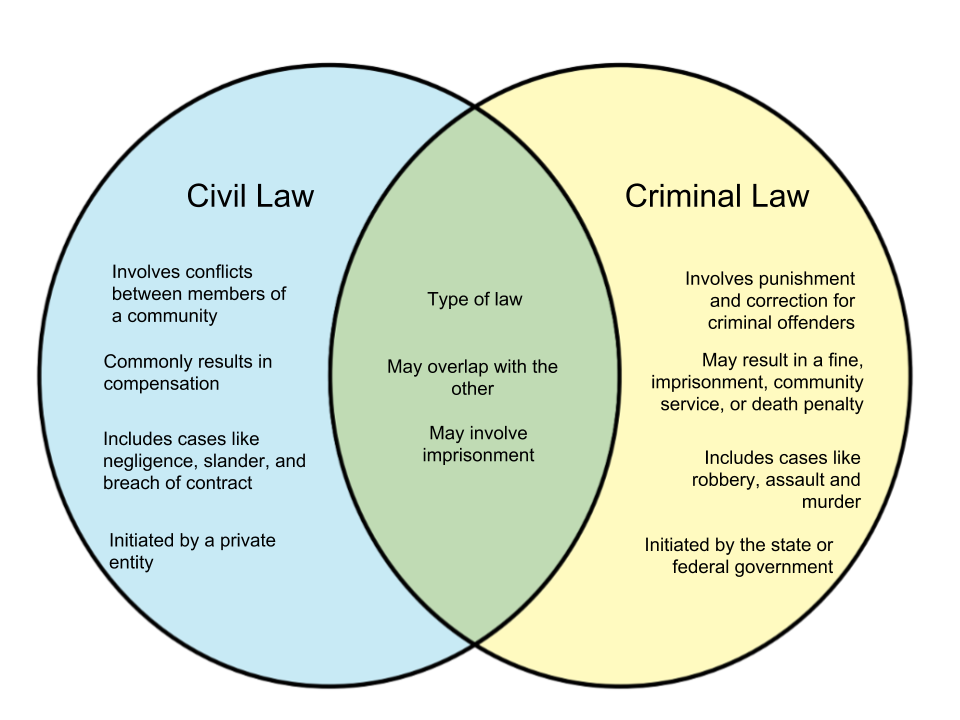Difference between revisions of "Difference Between Civil Law and Criminal Law"
(Created page with "thumb|right|Civil law or criminal law? There are two kinds of law - civil law and criminal law. Oftentimes, the distin...") |
m (Reverted edits by 108.84.57.109 (talk) to last revision by BelemMar) Tag: Rollback |
| (One intermediate revision by one other user not shown) | |
(No difference)
| |
Latest revision as of 22:47, 21 October 2020
There are two kinds of law - civil law and criminal law. Oftentimes, the distinctions between the two are hard to find. There are also cases when someone can be both civilly and criminally liable for a certain act. In this article, we will discuss the differences between civil law and criminal law.
Civil Law[edit]
Civil laws deal with cases that involve injury upon an individual or a private entity. This includes people, organizations, and even corporations. In civil law, the cases are initiated by the private party who is on the receiving end of the offense. Civil cases are often initiated from the disputes between two entities. The consequence of being judged for a civil offense is often in the form of compensation rather than imprisonment.
Criminal Law[edit]
Criminal law covers behavior that can be seen as offensive to the public, state, or society. The federal or state government often takes charge of initiating the case. The main purpose of civil law is to correct wrongful behavior as well as punish offenders to discourage them from repeating the act. The consequence for criminal cases is either a fine or imprisonment. Criminal offenders are more likely to go to prison than those with civil cases.
| Civil law | Criminal law | |
|---|---|---|
| Definition | A system of law that concerns private affairs between members of a community | A system of law revolving around the punishment and correction of those who commit crimes |
| Intent | Dealing with disputes between private entities | Maintaining the peace and stability of society |
| Involves | Private individuals and entities, organizations, corporations, etc | The state, society and/or the general public |
| Initiated by | The private entity (plaintiff) | The state or federal government (prosecution) |
| Final decision made by | A judge; in some cases a jury | A jury |
| Possible consequences | Compensation/ injuction in nuisance | Fines, community service, imprisonment, or even death penalty |
| Standard of proof | “Preponderance of evidence” | “Beyond a reasonable doub |
| Examples of cases | Defamation, negligence resulting in injury or death, breach of contract | Murder, drunk driving,sexual assault, robbery |

